Turks and Caicos: Where women hold the top jobs
- Published
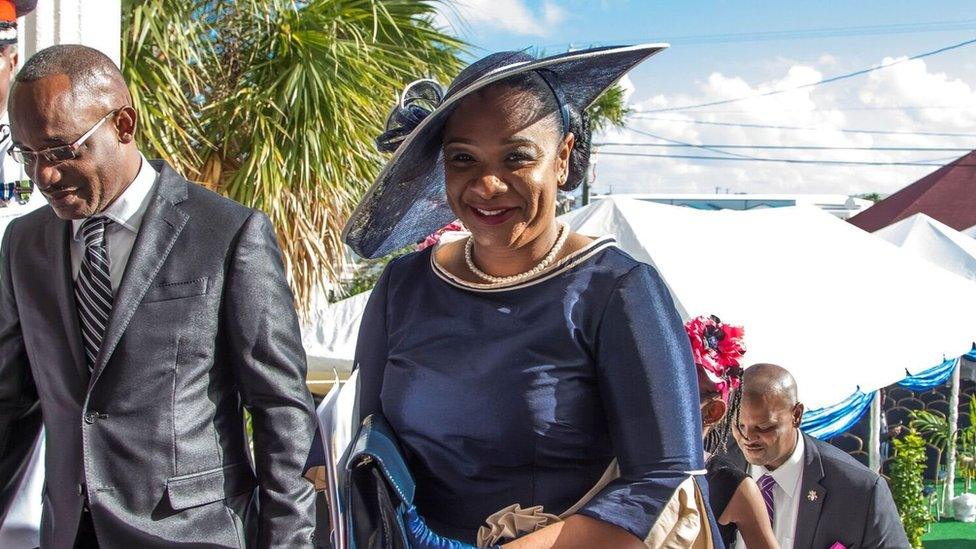
Sharlene Cartwright-Robinson is the first female premier of Turks & Caicos
Hillary Clinton may not have shattered the ultimate glass ceiling, and indeed women globally still occupy a meagre percentage of top public sector posts, but as Gemma Handy reports, there is one Caribbean country where females are bucking the trend.
December saw the election of the first female premier of the tiny British territory of Turks & Caicos (TCI). She is Sharlene Cartwright-Robinson.
Women also claim the titles of deputy governor, attorney general, chief justice, chief magistrate, director of public prosecutions and five of the seven permanent secretaries, among others.
Read more
In fact, with more females markedly outperforming their male counterparts, efforts are now being made to motivate young men in a bid for equality.
Turks & Caicos' Gender Affairs Department, traditionally aimed at empowering women, is shifting attention towards helping high school boys "become more focussed and take up pivotal roles in society", says Deputy Governor Anya Williams.
That includes everything from official commemoration of International Men's Day, to "build a boss" summer camps which teach young men vocational skills and include seminars on peer pressure, anger management and communication.
Success stories
So how did the women of Turks & Caicos achieve what many others still dream of?
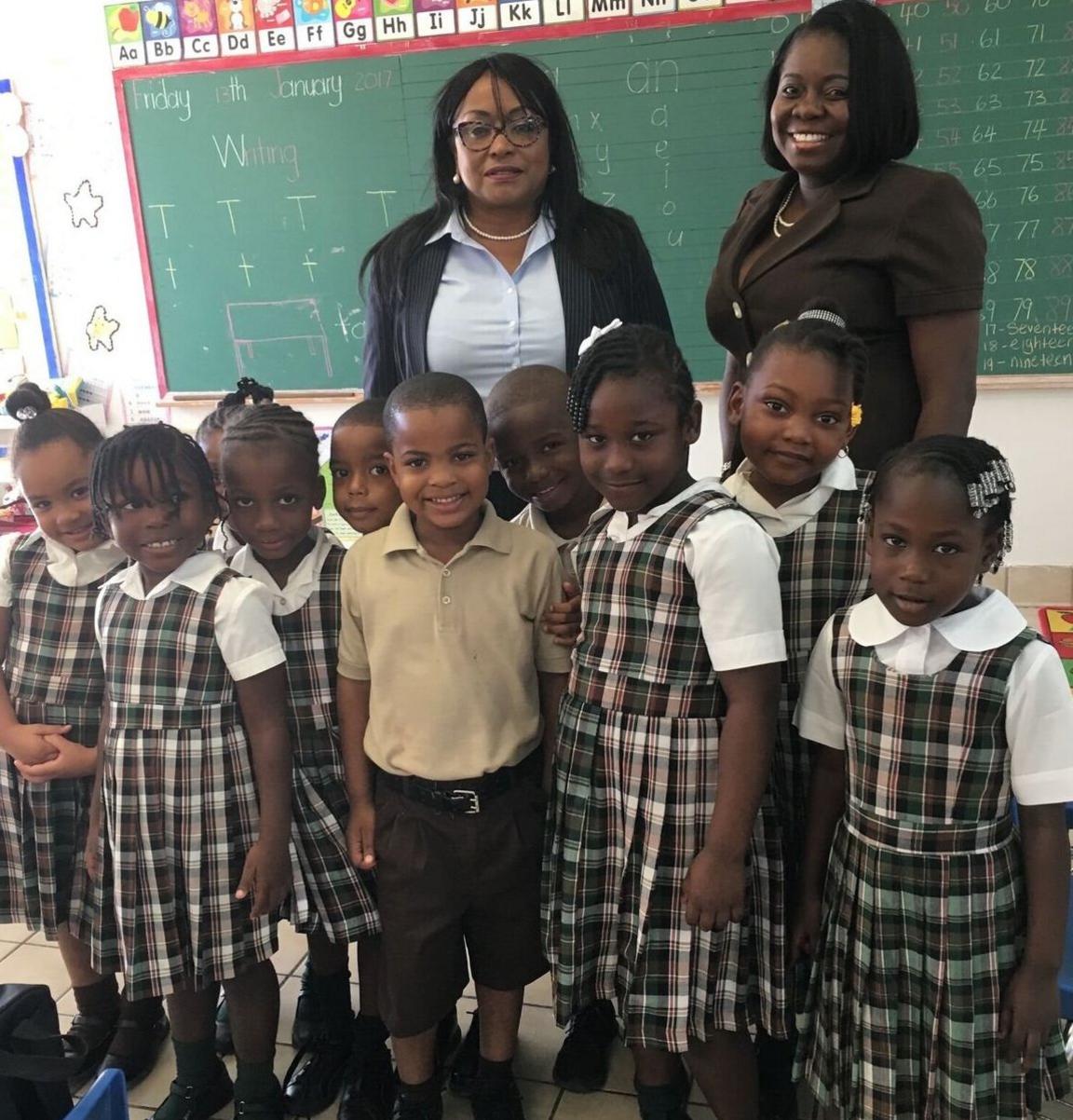
Education Minister Josephine Connolly (left) poses with the next group of ambitious young women - and men
Ms Cartwright-Robinson, whose PDM party snared a landslide victory in the 15 December general elections, says she was simply "the best man for the job".
Campaigning on a manifesto of social justice and open, transparent governance, she beat 52 other candidates to the top post.
Her triumph put an end to a 13-year reign for the PNP party, led from 2003-9 by former premier Michael Misick who remains on trial for corruption after his lavish spending prompted a commission of inquiry, followed by a three-year return to direct British rule.
Ms Cartwright-Robinson says that her eight years of parliamentary experience, including an advisory position to the UK interim administration, stood her in good stead for her new job.
"There may still be one or two pastors who think women can't lead but because of the work I have done over the last few years, I wasn't looked at as a woman but as a person who could get the job done," she told the BBC.
'Personal touch'
But she thinks that women do bring something special to the job.
"Women pay more attention to details and bring that level of personal touch. We are indeed occupying positions never before held and are doing remarkably well," Ms Cartwright-Robinson said.
But she added that trendsetters like herself never had an easy path.
"I celebrate the women in TCI who are shattering glass ceilings. These recent appointments demonstrate a level of maturity in my country that we can all be proud of."
Rhondalee Braithwaite-Knowles describes the volume of high-powered women in the islands generally as "noticeable".
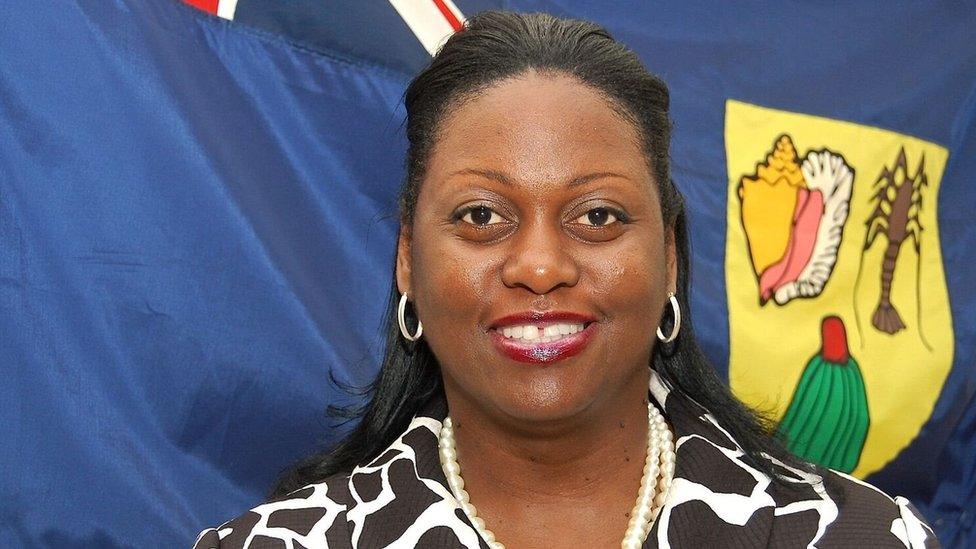
Rhondalee Braithwaite-Knowles became TCI's first female attorney general in February 2014
In February 2014, Ms Braithwaite-Knowles became TCI's first female attorney general following an open selection process which attracted applicants from across the globe.
"There are a lot of very strong women in TCI who play significant roles, who are very active in civic society and very vocal - in both the corporate world and government," she explained.
Of the 17 students from TCI currently training overseas to be lawyers, 14 are female.
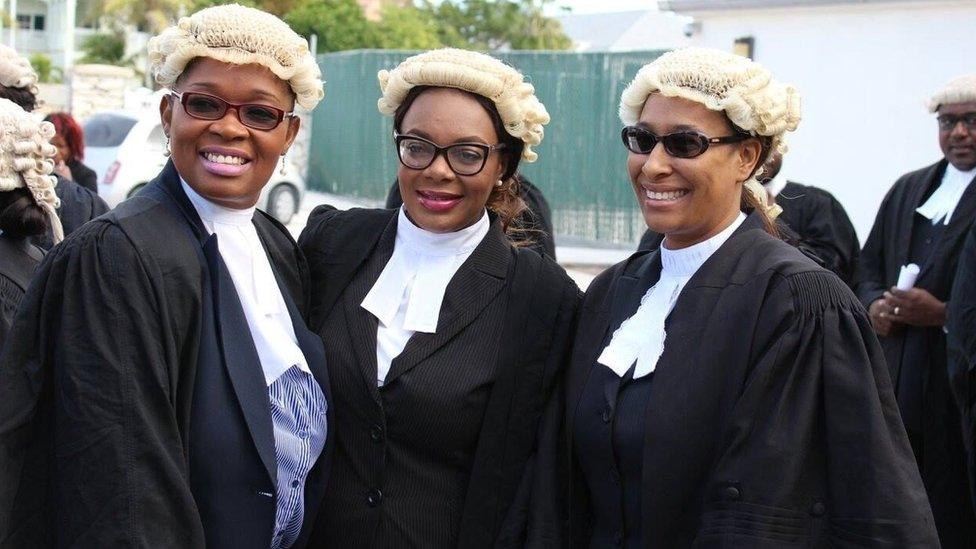
Top public posts in TCI's legal field are also held by women
"It's an interesting dynamic," she said. "I have found in my professional life that women have more emotional intelligence which is very useful when solving disputes."
Ms Braithwaite-Knowles says while she has never been a victim of discrimination, "condescension" from older male professionals is more prevalent.
"Sometimes you feel you have to prove your worth and that you're in the position purely because of the quality of your work. With older men in senior positions, your gender can be a distraction for them but after a while the fact that you're a female seems to disappear."
'No barriers'
What can be tougher to deal with, the attorney general continues, is balancing a demanding working life with being a mother to her seven-year-old son and a wife.
"But women are versatile so we are best suited to it."
She added: "The fact that women have reached these positions is an accomplishment. It's even better when we are able to demonstrate that we got there following an open and fair competition."
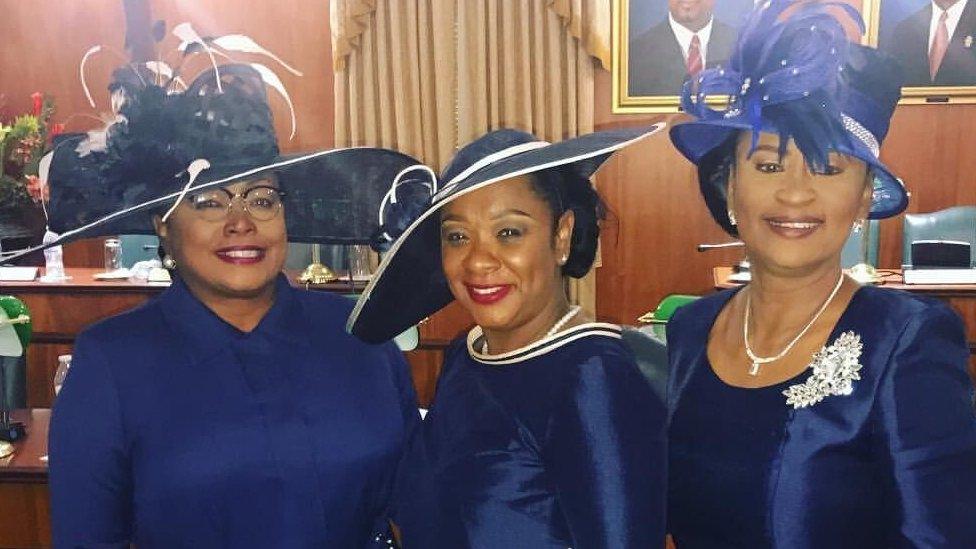
Ms Connolly, Ms Cartwright-Robinson and Deputy Speaker Karen Malcolm hold some of the country's most powerful roles
Deputy Governor Williams agrees.
Her role, second only to London-appointed Governor John Freeman, was also thrown open to candidates worldwide.

Deputy Governor Anya Williams was sworn in for a second time on 21 December
Previous position-holders had been directly appointed, not recruited.
Ms Williams, whose job includes oversight of the civil service and its 1,700 employees, was sworn in as a member of the cabinet for the second time on 21 December.
She tells the BBC women have long held prominent roles in the country of 35,000 people, particularly in the fields of education, medicine, politics and government.
"In TCI I see no barriers for entry or upward mobility," she said.
But she warned: 'Whilst it's great having females in so many top positions, as a mother of a young son we must ensure that our young males are motivated, encouraged and given opportunities to excel and take up future positions as well so that we have a gender-balanced society."
Correction 30 January 2017: This feature mistakenly said that Sharlene Cartwright-Robinson was the first female premier in any of Britain's overseas territories. That reference has been removed.
- Published19 October 2016
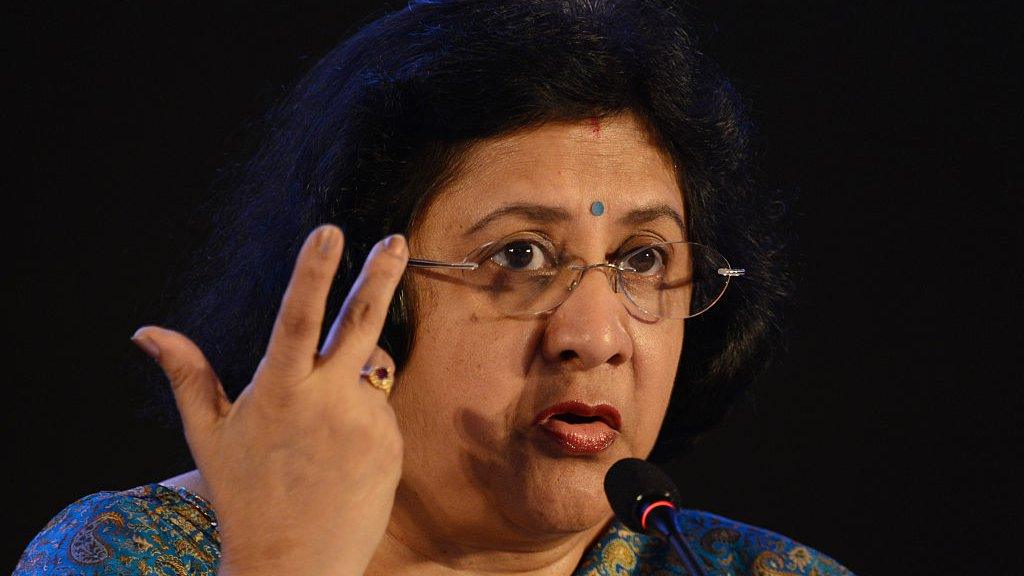
- Published27 December 2016

- Published19 January 2017
